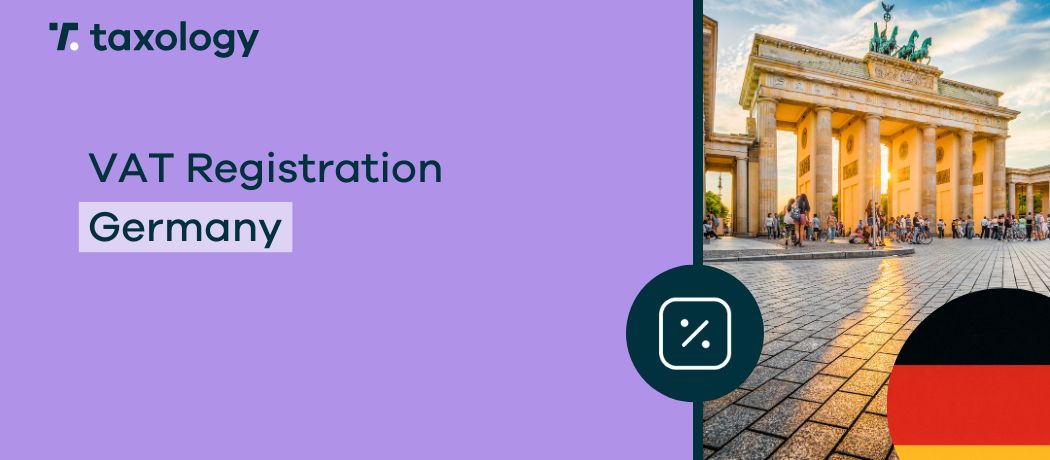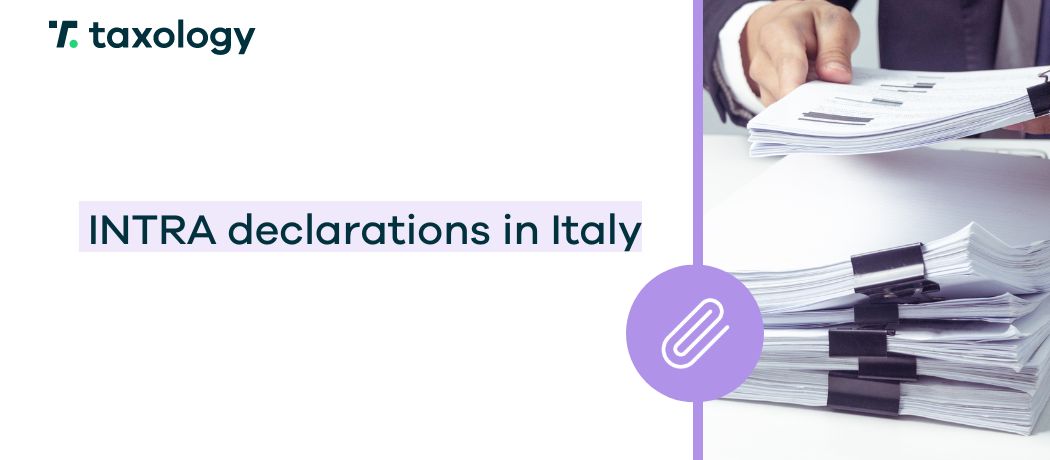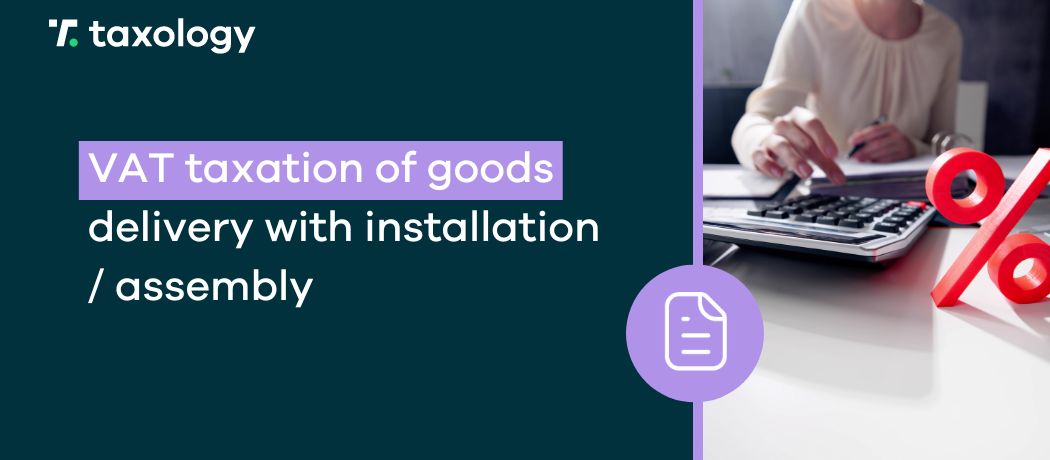Italy ranks as the fourth largest e-commerce market in Europe in terms of value. It is no surprise, then, that it attracts entrepreneurs looking to expand in this direction. However, […]
Read in: 4 minVAT registration in Germany
- Last update: 23.02.2024
- Published: 07.07.2023
- Read in: 4 min
VAT registration in Germany holds significant importance for any company engaging in business within German market. Given Germany’s position as one of the largest economies in the European Union, entrepreneurs seeking to expand their businesses within the community must give special consideration to this VAT registration.
However, it is crucial to bear in mind that Polish entrepreneurs aiming to tap into the market of their western neighbors may, at some stage, be obliged to register for VAT in Germany to comply with regulations and avoid penalties.
This article aims to address the process of VAT registration in Germany, its location, and the necessary documents that need to be prepared. That’s why, if you are looking for information for VAT registration or VAT Compliance in Germany, you are in the right place and we hope you enjoy the reading!
From the following article you will find out:
- The term used for VAT in Germany and the applicable German VAT rates,
- When in Germany VAT registration is required,
- What documents are required for completing VAT registration Germany,
- The specific German tax office where a Polish entrepreneur can initiate the VAT registration process,
- The difference between two German VAT identification numbers,
- What format the VAT number in Germany has,
- What obligations arise after getting German VAT registered.
VAT in Germany
VAT in Germany goes by two names – Umsatzsteuer or Mehrwertsteuer, and this applies not just in German-speaking nations.
Furthermore, the standard VAT rate Germany established in Germany is 19%, while reduced VAT rate Germany has is 7%. Also keep in mind, that a 0% rate also applies in this country.
If you wish to learn more about which products fall under each VAT rate or VAT invoicing rules, you can check out our article – VAT Germany 2023.
When does the requirement to fulfill VAT obligations arise?
The requirement for VAT registration in Germany, as well as any other EU country, occurs under the following circumstances:
- When selling goods to German customers (private, located in Germany),
- When buying goods and importing them into Germany from another EU member state.
- When exporting goods from Germany to non-EU countries.
- When importing goods from non-EU countries into Germany.
- When storing goods in Germany and selling them to customers.
Under the mentioned circumstances, business owners are obligated to pay VAT in Germany, which requires prior German VAT registration. Alternatively, a special VAT OSS procedure can be used for intra-Community B2C transactions. For more information about VAT OSS, refer to our article – What is VAT OSS? However, it is crucial to note that this procedure does not cover goods storage, which requires local declarations to be filed.
Moreover, Polish entrepreneurs have the option to get registered in Germany for VAT by mail.
Intra-Community supply of goods vs. sales limit
Effective from July 1, 2021, the e-commerce package was implemented, which included a new limit for mail-order sales in EU countries. Once this limit is exceeded, starting from the transaction that surpasses it, Polish sellers are obliged to pay VAT in the buyer’s country, and this requires prior registration for VAT. Moreover, from that day the VAT registration threshold Germany (and other UE countries) once had, are no longer valid.
Importantly, the new limit is applicable to the total sales made to EU countries. Before reaching this limit, Polish entrepreneurs are bound by domestic VAT rates, but once it is surpassed, they must apply the rates of the buyer’s country to their sales.
To find out more about the distance selling threshold, you can refer to our article – EU mail order sales limit.

Need help with VAT registration in Germany?
The required documentation for VAT number registration in Germany
To become a German VAT payer, a Polish entrepreneur must gather specific documents needed for VAT registration in Germany. These documents include:
- Fragebogen – registration application,
- identity card,
- confirmation of an active bank account,
- confirmation of registration for EU VAT,
- power of attorney if using the services of a fiscal representative.
It’s essential to note that the documents for registration listed above are just examples of the necessary paperwork, and some of them may need to be translated by sworn or regular translators. Our team of VAT Compliance specialists can assist you in obtaining a German VAT number. Don’t hesitate and schedule a free consultation today.
See also: when does a Polish company need to acquire a German tax identification number?
VAT registration process Germany - Which German tax office should I choose to register for VAT?
Selecting a German tax office for VAT registration in Germany can be challenging or somewhat unconventional. This is because Polish companies must report to the specific office based on the initial letter of their company name.
Therefore, the relevant German tax office for fulfilling the registration obligation is as follows:
- For company names starting with letters A to G, it will be the tax office in Hameln.
- For company names starting with letters H to L, it will be the tax office in Oranienburg.
- For company names starting with letters M to R, it will be the tax office in Cottbus.
- For company names starting with letters S to Ź, it will be the tax office in Noerdlingen.
VAT Number in Germany
When VAT registration is complete, one acquires a VAT identification number Germany.
However, in Germany, one can encounter two types of numbers used to identify yourself to VAT and other purposes, so let us clarify the difference.
The first one is Steuernummer – German tax number for identification – used when doing business with German companies and to identify yourself when in contact with German tax authorities.
The second one is Umsatzsteuer – Identifikationsnummer (USt-IdNr), commonly called the German VAT identification number, which is used for Intra-community transactions. It is acquired through the German VAT number registration process, however the applicant has to state on the registration form that he requires this number as well as Steuernummer. USt-IdNr consists of the “DE” prefix, followed by 9 digits.
To sum up the topic of German VAT number – every entrepreneur in Germany must have the Steuernummer, but USt-IdNr is optional, given only to those who apply for it.
German VAT obligations
German VAT registered entrepreneurs have some tax obligations. One of them is using the applicable VAT rates in Germany, adequate to products and services sold.
VAT reporting obligations – periodic VAT return Germany
Moreover, there are also VAT reporting obligations. Having not conducted the OSS registration, entrepreneurs must submit local VAT returns for which the reporting frequency depends on the fact if a company excedeed 7,500 EUR of refundable VAT in the prior year.
Monthly VAT return Germany
Having exceeded the aforementioned limit, companies that are VAT registered in Germany, must submit monthly VAT returns in Germany and the time is till 10th day of the month following the reporting frequency.
Quarterly VAT return Germany
If the companies didn’t exceed the 7,500 EUR, they are obliged to submit quarterly VAT returns. To do so, they have time till 10th day of the month following the reporting period.
Annual VAT return Germany
When a company is VAT registered in Germany and submits monthly or quarterly VAT returns, they must also sumbit annual VAT returns in Germany. The deadline concerning these is 31 July of the year following the reporting period.
VAT registration process Germany - summary
VAT plays a vital role for businesses not only in Germany but across the European Union. There are circumstances, under which foreign companies need to register for VAT in the member states and pay and file a VAT return in the country of registration, or use the VAT OSS (One-Stop-Shop) procedure.
Nevertheless, it is crucial to keep in mind that within the EU, individual countries have their own specific regulations, and Germany is no exception.
To avoid fines or VAT-related penalties, it is advisable to familiarise yourself with and comply with the VAT regulations applicable in Germany before commencing any services or sales there. For that, it’s good to make sure your company is VAT compliant by choosing German VAT Compliance services.
If you anticipate the need to become a German VAT taxpayer and obtain a German VAT number, our team of VAT Compliance specialists can assist you with the registration process. Simply schedule a free consultation to get started. Additionally, Taxology offers a range of services related to other aspects of VAT, including declarations, settlements, and VAT OSS.




